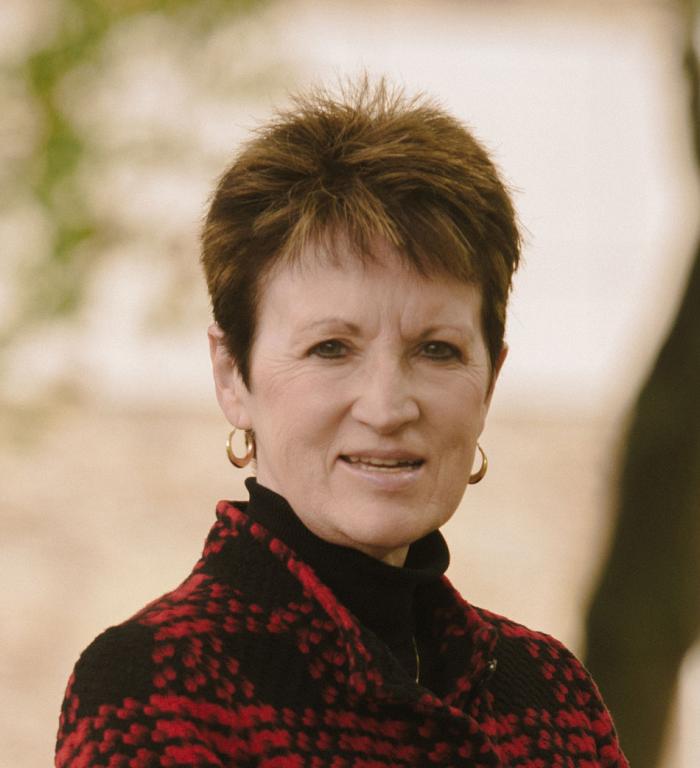Few things challenge our integrity or our comfort, like being called to express our opinion on an issue where we know we have trusted friends or colleagues or family members on both sides—and in the same room! We are caught in the middle. Moments like this take us off guard at the family dinner table, or at a church committee meeting, or in a casual drinking-fountain conversation at work. Furthermore, they seem to come more often these days. After all, we are in an election year; there are controversial wars in every direction we look; and social and ethical mores that we took for granted suddenly are not to be taken for granted. And then there is social media and the pressure of “virtue signaling.” As thoughtful human beings, we want not only to be right, but to be seen to be right. It is enough to keep us from going out of the house in the morning.

Of course there are several options in such moments. We can suddenly remember an urgent meeting back at the office, or a phone call that must be made immediately. We can be silent and bury our nose in our cellphones, hoping no one will notice that we have not spoken. Or we can make a bland comment calculated to reveal nothing nor to alienate anyone in the room.
These are the moments that invite us to consider the bold choice to become part of the “company of the courageous middle.” Making this choice is not something that happens by default. For one thing, we often think of the “middle” as a place of timidity, of moral or intellectual laziness and irresponsibility. We do not want to be accused of being wimpy or “lukewarm.” It does not occur to us obviously that the “middle” might be a place of bold activism, of imagination, of pro-actively playing host to a conversation that surprises the company in the room rather than contributing to the predictable and well-trodden path of polarization. Second, most people prefer to avoid even the possibility of conflict. Finally, most of us—and perhaps especially the academics among us—are better practiced and even perhaps expected to bring the final authoritative pronouncement on a subject, thus closing down further discussion, rather than offering a question or a comment that productively prolongs or enlarges the discussion, thus opening the possibility of new insights or an expanded vision of the Truth.
So how does one prepare for choosing the option of the “courageous middle?” First of all, I believe it is helpful in this season to be self-aware of the places where our own experiences or convictions enable us to understand the perspectives of people on both sides of us who might not be able to understand each other. Each of us brings a measure of “bi-lingual” skill that is particular to our own journey. This capacity may come from our family or religious upbringing, or it may come from our formal educational training. We know well-meaning and thoughtful people who think differently on a host of different issues. (This does not at all mean that there is no truth to be had, nor does it concede to a relativistic view of the world. We may all agree that “murder” is wrong, and then disagree strongly on what constitutes “murder”, to give one example.) Each of those who is part of the “company of the courageous middle” will look different, depending upon one’s own story.
Second, it is helpful to do the hard work of thinking deeply enough about the most common controversial issues to know what some of the complexities are—to know what might draw good and thoughtful people to one side of the issue rather than another. It takes time and intellectual discipline but if we are to be ready to be an agent of the “courageous middle,” we must know what some of the competing goods are within the framework of any given controversial issue; we must be aware not simply of what is clear about the situation, but what might be some of the ambiguities or places where we need further knowledge; and we must be attuned to where knowledge leaves off such that good and intelligent people will have to make a judgment call—and should be permitted to do so.
Third, and most difficult of all is the work on our character if we are to be able to function well as effective hosts of creative and potentially redemptive “middle space.” If we are people of faith or academics, our identities and our egos are often caught up in being viewed as authorities on whatever matters are at hand—especially if truth seems to be at stake. We are often taken to be the ones to whom others look for guidance and for what it means to stand for the right. It is simply more comfortable to remain in that space than to use a measure of that very trust and credibility to invite people into a larger space of dialogue, of listening, and of exploration with those who might think differently from them. Good and thoughtful people on either side of us are afraid of risking the security of what they believe they understand for fear of slipping into the abyss of relativism or the anxiety of uncertainty.
It takes genuine humility to step out and risk losing the approval of everyone in the room or at the table by not taking anyone’s side completely. I am not speaking of the self-abnegating posture that often passes for humility. Rather, I am calling for the genuine humility borne of knowing that one’s dignity and identity is secure—and independent of the approval of those in the room.
It takes a confidence that the Truth is larger than any one of us has at the moment. (To put this in philosophical terms, we must have “ontological” confidence and “epistemological” humility—a confidence that the Truth is there to be had, but an understanding that our own capacity to see that full picture of reality is limited at any one moment. There is more to learn and room to grow. If we are thinking theologically, this is where it is critical to remember both our finitude and our fallenness.)
It also takes great wisdom to mediate conversations that truly open up productive dialogue and listening without ending up in lowest-common-denominator blandness and the very abandoning of conviction that everyone feared in the first place. (Turning an entire room of people into skeptics is a relatively easy task by comparison!) This wisdom comes, in part, from practice at posing questions that invite clarification of why people believe what they do and why they chose one “side” of an issue rather than another, or questions that invite the group to consider where further research might be useful in bringing deeper understanding or more clarity.
An agent of the “courageous middle” must learn how to host space where everyone feels sure that their personal dignity will be protected and that they will not be asked to trade in their convictions pre-maturely, and that they will have a chance to be truly heard even as they are being asked to listen. An agent of this redemptive work of “middle space” must learn to work in a spirit of invitation—helping a group—however large or small, to dare to consider moving beyond current certitude to consider new information that might move them to a larger or more complex sense of the issue at hand.
Finally, it helps to remember that it is not our responsibility to make people opt for Truth. For Christian believers, we would say this is the work of the Holy Spirit. Whether one is a religious believer or not, it is helpful to realize that few people are moved to change their minds by appeals to reason alone. (I was much more confident of the convincing power of logical clarity when I was 18 than I am now.) Our task is faithfully and graciously to offer invitations that make people yearn for greater understanding and clarity—and then make available the resources to help them pursue that larger vision of Truth.
In summary, if we are to be redemptive agents of the “courageous middle,” we must resist the Enlightenment inclination to see knowledge linked primarily to power, and instead choose the counter-cultural path of linking knowledge to sacrificial and self-giving love. This is the vision held out in St. Paul’s letter to the Philippians (Chapter 1: 9-10) where love, and knowledge, and personal transformation are linked in an intriguing progression. This embodiment of Truth and Grace is modeled most compelling, to be sure, in the life of Jesus as described in the Gospels. This is our pattern for the work of the “courageous middle.”

Shirley Mullen is the President Emerita and Professor of History Houghton College (now Houghton University) and author of Claiming the Courageous Middle: Daring to Live and Work Together for a More Hopeful Future (Baker Academic, 2024).













